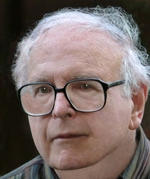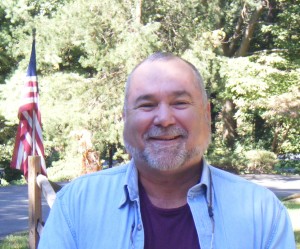
Commenting on Berto Jongman: Modernizing Analytical Training + Robert Steele & RECAP
Remember the Gorge Carver-Gorge Allen contrasting mindsets in predicting the outcome in Vietnam. The optimistic Carver argued , “if, if, if, we’re going to win. The pessimistic Allen countered: “unless, unless, unless we’re going to lose.”
In more formal argumentation, the “ifs” and “unlesses” are the ‘key assumptions” or “key variables” that are intended to support the estimated prediction. What have we here? Rarely a path to the truth.
Instead, usually thoughtful subordinate judgments in support of an overall judgments in the form of predictions. A central connection which I’ll skip over is that the greater uncertainty of an intelligence-policy issue, the more analytic predictions must rely on assumptions and conjectures.
Enter Rumsfeld with his unknown unknowns as well known unknowns. Will the analysts’ key assumptions be the real drivers of events, and if so will the analysts’ judgments undergird or undermine the prediction.
Enter Steele with his conviction that the key to avoiding misinterpretation of key variables (known unknowns) and of reducing the number of unknown unknowns is more extensive and more efficient mining of Open Sources. In a sense, taking greater bites out of the vast universe of diagnostic “unknown knowns” will likely Improve intelligence prediction efforts.
Enter Davis, ever the tradecraft tinkerer. Even with improvements in prediction performance, policy clients will hesitate to “move aircraft carriers” and incur other costs regarding a future threat or opportunity predicted by intelligence analysts—but lacking hard evidence (think 9/11). That Is why I have written often of adopting the UK system, in which policy heavies serve both as producers and consumers of predictive analysis and of the warning process generally.
Cheers, Jack

Jack,
I would add that Steele is NOT just about optimizing open sources of information in all languages and mediums, but about the combination of:
01 HOLISTIC ANALYTIC MODEL across all threats, policies, demographics — must do them ALL, TOGETHER
02 TRUE COST ECONOMICS — the truth at any cost lowers all other costs, being blind to true costs is unethical idiocy
03 OPEN SOURCE EVERYTHING ENGINEERING — we must shape the future for the best, not predict the future from the worst
I do agree with Michael Herman that that vast majority of all policy-intelligence at the strategic level should be unclassified, which is to say, transparent and subject to public questioning of assumptions, suggestion of alternative scenarios, and general maintenance of integrity.
Robert
Robert,
I know you have broad intelligence interests that are connected to one degree or another to prediction. But I wanted your stellar work on OS to stand out.
Jack
See Especially:
2014 Steele on Intelligence in Ecuador (English)
See Also:
Definition: Collective Intelligence by Robert Steele — A Conversation with Tom Atlee
2002: New Rules for the New Craft of Intelligence (Full Text Online for Google Translate)
2014 Robert Steele Applied Collective Intelligence
Review: Intelligence Power in Peace and War



